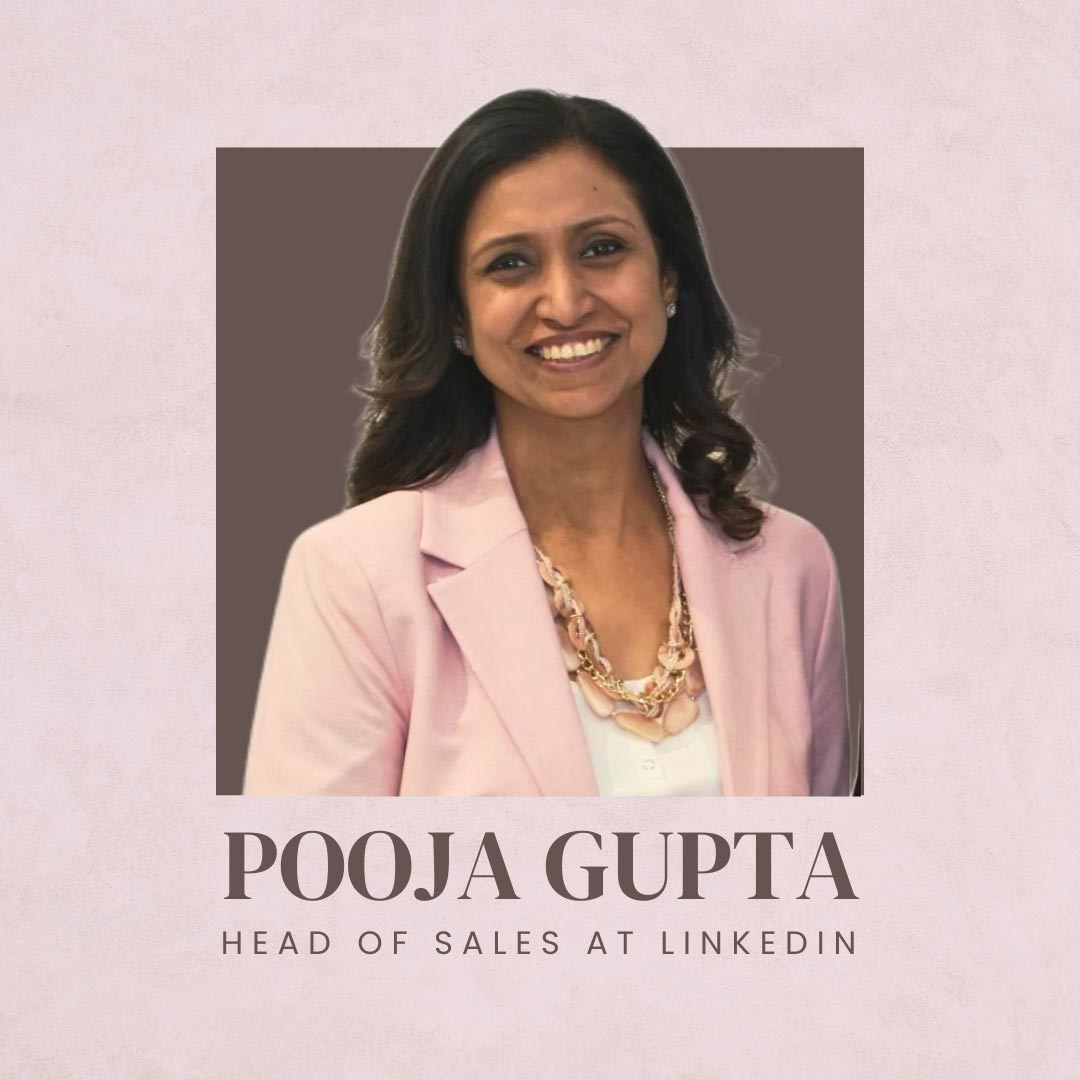CATEGORIES
Entrepreneurship | People We Admire | Women EmpowermentOverview:
-
- Despite enduring a challenging childhood, Pooja persevered and discovered her true calling.
- As a passionate advocate for empowerment, Pooja defines leadership as the art of inspiring others.
- Authenticity is Pooja’s north star, shaping every step of her entrepreneurial journey.
- Pooja finds meaning in her relentless support for women returning to work.
1. Can you share a bit about your childhood and how your experiences influenced the person you are today?
It takes me back many moons and decades—which also reflects my age—looking through the kaleidoscope of my life and how my childhood was. Our life experiences and childhood are foundational in shaping our character and overall demeanor , which is how we show up in the future.
My childhood was warm with great parents, and I had the kind of childhood that anyone could think of. But like all good things of course, it was a bumpy ride as I had my fair share of struggles. I lost my father at the very young age . I honestly did not know the meaning of losing a parent until a couple of years later when I realized how valuable that lost relationship was. I’m the youngest in my family after two brothers, so it’s a different kind of girl power situation here. I had a lot of power play at home, and I was told that my parents prayed a lot to have a girl child.
Apparently, I was born during an auspicious time for Hindus, called “Navratri,” and that’s how they named me Pooja. Growing up, I challenged everything that came my way, I hated the status quo, so I could not really say that I fit naturally to the expectations. I was quite a rebel growing up.
2. Could you also share with us any fondest memories of your childhood?
Mothers day was just yesterday, and I have the fondest memories from my childhood with my mother. I lost my mother also a couple of years back. Losing both parents can be daunting and heavy, and nobody else can make up for it.
I think the transformational events where I had to decide on my higher education, and there wasn’t anyone at home who could be like a coach or a guide in life. My father wasn’t there, and my mother’s perceptions were limited to being a housewife.
We had a five-minute conversation at home about what I would like to do. My family knew that I was dropping sports. I had focused a lot on my studies, and was doing well there, but they also knew that I had a creative streak. Hence, I think we unanimously decided that I should do something with textiles and fashion designing, predominantly coming from a place where it would cost us less than other choices.
However, once my mother realized that I wanted to pursue further education because she knew that it was my calling, she made it happen for me without letting me know of it. It was a time we were financially struggling and had to pay my tuition fee. We were already two days past the deadline, but my mother came up to me and said, “Please go ahead and pay your fee.”
I still do not know what transpired and where she arranged the money from, but I will never forget that day. I can still clearly recall that moment. My mother made the impossible happen and I am forever grateful to my parents for who I am today.
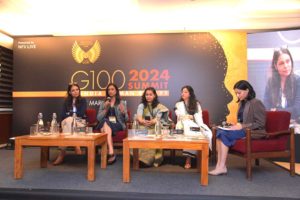
3. As a woman in a leadership role, what does leadership mean to you, and how do you balance your professional and personal life?
I don’t want to give out a cliche definition to this question, but to me, leadership is to be able to inspire .I wish to be that every single day, a leader who walks the talk.
About balancing my personal and professional life– honestly, I’ll be lying if I say I do it well. I don’t, I’m a work-in-progress.
Aside from my work, I have two daughters.: One who is eighteen years old who behaves like she’s already 25, and another who is currently Twelve but behaves like an eighteen-year-old. Managing a household can get demanding.However, if you are truly passionate, and sincerely driven by what you are doing, you will wake up excitedly every morning without feeling too much pressure.
4. Many trends in your industry stem from cultural influences. What do you anticipate for the future of trends in your industry, globally?
I think the one thing that I’m talking a lot around, which most researchers also validate, is that you’re going to soon move away from the pedigree to the potential.
There is an enormous pressure on today’s youngsters, that I also see in the older generation, about their perception of education. Whether one’s a millennial or from the generation alpha, they see education as an end, rather than a means to other higher aspirations. Education is a journey that helps shape a person up. It is a process of developing skills that are transferable to situations in the future.
For example, there were times during high school when I had a hard time solving trigonometric questions. Do I still remember those mathematical formulas? No. But I do remember that I worked hard and dint give up. It’s not about equations or difficult courses anymore, but rather about persistence, resilience and other skills you pick up along the way.
I also think having a skill set is becoming more and more important nowadays. I request the younger generations today to zoom into it, and ensure that they are upskilling themselves in the skills of the future. A type of future-proofing, preparing themselves for the fluidity of the macros that we continue to operate in, is key.
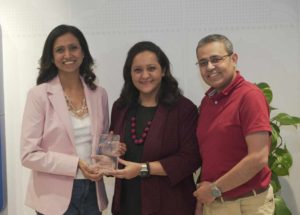
5. In times of adversity and challenge, where do you draw strength and resilience from in your personal life?
Character-forming takes place pretty early in a person’s journey. Not saying that a person cannot build and reshape themselves later in their life, but rather, I want to focus on the part where people keep dwelling in the past without moving on– rather distancing themselves and have a growth mindset. There are things that we can control, but there are also things that we cannot. Whenever I face a difficult situation, I just take a step back to pause. I try not to react in those dire times as I assess which actions would lead to the most beneficial outcomes, and reflect on them as I determine my way forward. I do not act rashly, but instead take my time to ponder and weigh in the decisions.
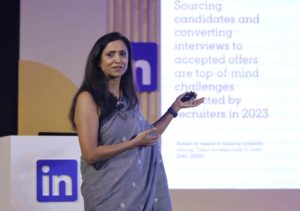
6. As a leader, vulnerability can sometimes be seen as a weakness. How do you balance vulnerability and authenticity in your interactions, both at work and in your relationships?
I do not want to just sound idealistic but it’s always helped me in a way. Of course, there have been situations where things haven’t worked out.
For example, just recently, I’ve had a bit of a sabbatical in my career. A sabbatical in India comes with some kind of judgment. If someone takes a sabbatical—especially a woman—there’s a lot of speculation or comments with a hint of prejudice that always comes around. Comments like: “she had dropped the ball,” “she would be left behind by the skills prevailing in the market,” or “she would not be apt for the role because of a career gap,” and so forth. The career path for women is not linear as it is intertwined with so many things. I realized that when I attend interviews for jobs while being honest, vulnerable, and authentic as much as I wanted to. It seemed that it was only becoming a roadblock for me.
I decided to stop and ponder if I was doing things the right way, to reflect my professional trajectory and honestly, I took a two-pronged approach then. One was that there were gaps in the way I had communicated the career gap on my Linkedin profile, i went on to add transparently sabbatical on my profile itself. If somebody already knows that I’ve had a sabbatical before speaking with me then at least I think you’ve won the conversation—at least 40% of it. The expectation setting is there, the baseline has been set, and you only have to speak within those settings.
The other was to take it in your stride, to respect your journey. I learned through my experience that if it’s meant to be, it will come your way. I’m not saying don’t work towards it. You have to work towards it with authenticity, there is no other way to do it. As a leader as well, that’s one skill that has always worked in my favor, whether it was building my entrepreneurship or working for any of the organizations, because there’s no other way trust building can work if you’re not authentic to everyone.
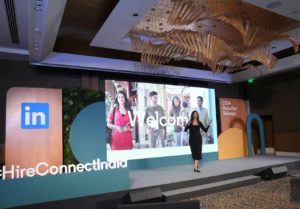
7. Diving into the future, what legacy do you hope to leave behind in terms of the impact you’ve made on the industry, your team, and the advancement of women in the workplace?
Plans and set career goals for the future are already in action. I, of course, want to continue progressing in my current role. That’s what I’m looking forward to on LinkedIn and see how I can grow here in the organization. This is one organization that meets the purpose, while sales happen to be a career choice.
Rarely can a person work for a company that allows them to connect with the social and personal cause that they feel very passionate about. This interview with Girl Power Talk is something I had thought of doing as a way to pay back to people who were supportive in my journey. I do a lot of such sessions along with my association with various NGOs to help women return to work. It also includes helping them prepare their resumes, providing any other kind of guidance and coaching they may need. I believe the future is already in the present, I’m just working to be able to sustain it and ensure I’m giving my best.
I am grateful that my workplace recognizes good work, and also believe that hard work never goes in vain. I recently got recognized as one of the best managers at LinkedIn India. It’s honestly very gratifying. It’s a very humbling experience, I wish to continue working in this direction and see how I can grow in my career.
The word “legacy” didn’t strike me when I was much younger, but as of now with more growing grey hair, I think a lot around this, both professionally and personally. What kind of a role model would I like to be? Like I said earlier, I’m just always been authentic and real. There is no particular playbook that you can form and then just follow through, that works for everyone. Everyone has their unique journey, and I must keep mine very lucid in a way that my kids would look up to me and say, “hey listen, while she might not be available to get my homework through, she’s always by my side.”
I also want my daughters to focus on their careers along with everything, be financially independent and to be able to do this guilt-free work—that’s the biggest challenge as a mother. No one tells you that but you constantly struggle within yourself with questions like, are you doing enough? Is there more you can do? and so on. There are a lot of stalwarts and people who have worked for more than decades here at LinkedIn and they’ve been doing some phenomenal work. I continue to learn from them. I hope to improve my skills and leave a strong remembrance of me whenever I take up a new role within or outside LinkedIn.
Conclusion:
Transforming challenges into stepping stones, Pooja not only excelled in her career but also empowered other women along the way. Her hard work and resilience enables her to navigate both professional and personal obstacles with a growth mindset.

